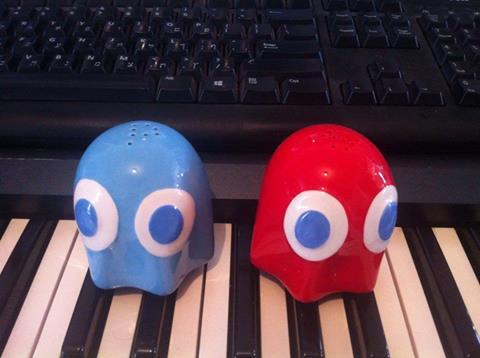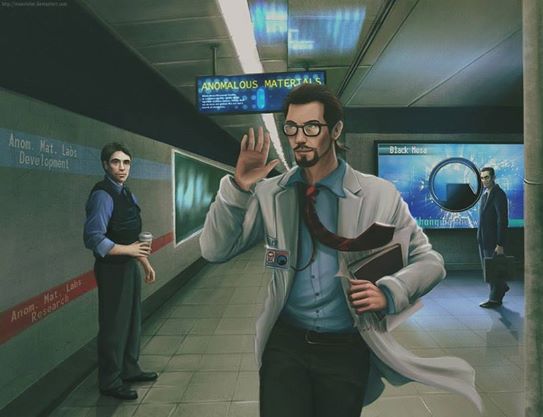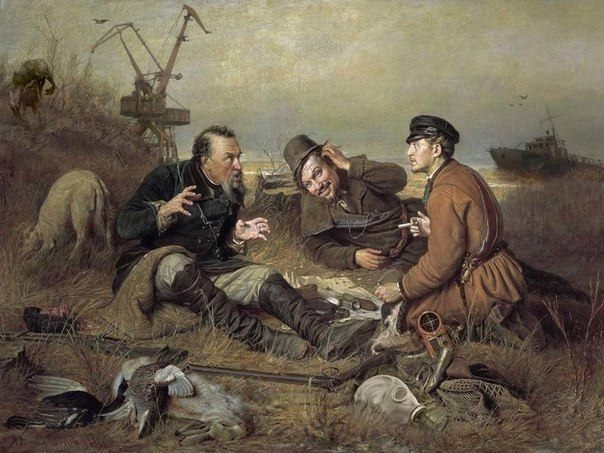Game design - revealing a phenomenon or Who is a game design - scientific anatomy of a profession

Many novice developers believe that they understand how to make games, having behind them a lot of games that have been passed or tested by them, or trying mapping, modding on different game engines and game editors. Even some programmers, more or less professional, believe that they can cope with the task of creating games. I do not want to upset anyone, but I think that this is not the correct position on the part of the beginners or on the part of the programmers.
On the other hand, we must bear in mind that if someone learned how to work perfectly with different game engines, with some game editor, learned how to program or simulate assets, this does not mean that he is a game designer! In this case, such a person, being from a number of developers, can be called a game developer ( game developer ), but with a more specific feature of the work, be it programming, level design, modeling, and so on. That is, it is rather a game "technical worker" who is well versed in technical aspects, more or less artistic, from the game being developed. –Approximately also, as if some cameraman was well versed in working with a camera, but who has little idea about working with actors or about directing the incarnation of the film. And here appears on the site ... what do you think, who? Yes - the director! And in terms of games, this is game design. Of course, he is also included in the category of game developers, but with particular specifics of the work.
Unfortunately, a significant part of game development specialists have a very vague idea of such a phenomenon as “game design”. Even more obscure is the profession of "game designer." Let's clarify these phenomena, if you will, in a more scientific way.
')
To the note : By the way, the unofficial day of game designer is celebrated on the 6th of August.

In more general terms, it is known that “game design” ( in a sense, development, drawing up games ) is a creative process of developing a specific game. And one that in one way or another makes up the concept and gameplay, the style and structure of the game, in general, is called “game designer” ( from the English “game designer”, translated as “game designer”, and the word “designer” itself should be understood more correctly as an “artistic designer” ).
Let us turn to the analogies of some professions, from the kinds of art known to us, so that it is more clear what the role of the game designer is in creating the game and what the baggage of his professional knowledge should be. This refers to the profession of "theater director" ( metteur en scène, stage director, theater director ), of course - from the theatrical art. And the film director profession from filmmaking. Each of these professions has some similar features of these types of arts. - Do not be particularly surprised! The profession of game designer ( which can even be called a “game director” !!! ) is very similar to the profession of a theater or movie director. But it has its own specifics, its own particular features.

–Let us see what are the features, similarities and differences of these three professions:
Theater director
( theatrical art ): analyzes the selected play ( created by the playwright or the director himself, usually inspired from a literary work or having an original plot ), works with actors on role analysis and mise en scenes ( -staging scenes placed compositionally on the theatrical scene ), also on whole scenes from the play; works with a set designer ( he is a decorator, stage interior designer ) on decorations; with an illuminator (designer of light, light effects), plus work with a costume designer ( designer of clothes ), and, if necessary, with a composer; makes directorial notes for the play ( where it can describe stage settings, scenery, or changes the play according to its creative interests ); then presents the final version of the performance on the stage of some theater ( inside or outside the theater, sometimes located on the street on the stage ); In the performance, the same actors usually play during one or several theatrical seasons (a time interval with regular performances and work on new performances ).Film director
( cinematography ): analyzes the screenplay ( written by the scriptwriter or the director himself, inspired usually from a literary work or having an original plot ), works with actors, with illuminators and operators, with costume designers and composers, with special effects specialists, with a sound editor (also called a sound producer ) , and with other professionals who have direct or indirect connection with cinema. Of course, the most important is the development of a director's script based on the literary version, in which the director splits ( divides ) each scene into smaller cinematic shots, describes each frame separately, according to the cinema language ( for example, the Russian version is plan, first medium, second medium, general “growth” plan, long-range plan, detail, and others ). The director's script looks more like a very large and long scheme in dozens of pages, having several sections with entries in them, where passages from the literary script are present, as well as film language descriptions, less literary ones, made by the director.In rare cases, the place of the director may be taken by the cameraman, in this case called the production director, who must also be able to understand the artistic and technical aspects of the film. Already with the actors can work theater director or a more experienced actor.
Final versions of films are usually presented ( projected ) on cinema screens, inside a building or outside. Another option is to publish movies on different physical media ( disks, tapes, etc. ) for home viewing in a narrow circle of viewers. With the advent of the Internet, specialized websites are also being launched to watch movies online, for a fee, or for free ( but with intrusive advertising ), or to buy a movie individually and then download it.
Game designer
( game director, interactive art, it is also an interactive ): he comes up with the concept of the game, in-game mechanics, collaborates with programmers, with the artist and composer, with modelers, mappers ( -the same level designers ), creates a design document ( something like a game manuals, instructions with a detailed description, handbook ) on which developers are guided during the creation of the game; compiles the gameplay by levels, according to the literary scenario ( which is written by the scriptwriter or by the game designer himself; and “compiling gameplay” means a detailed description of the action in the game at each level - something like the director's version of the game script ); can also make a film director's description of cut scenes ( in the case of the existence of similar movie scenes in the game - cut-scenes, cinematic sequences ).To the note : Some experts suggested deleting the term “gameplay”, replacing with other terms, in my opinion, less logical from the point of view of the analyzed area. However, this term has long been used. In more general terms, the gameplay denotes the fundamental narrative, the foundation of any game. The gameplay can be described most precisely as the direction of the game and it is more correct that these two terms would be included together in the specialized literature. That is, they are written at the same time or, if you wish, they are entered one by one as in this example - gameplay ( direction of the game ), and also - gameplay script ( directorial scenario of the game ).
Accordingly, we conclude that the main difference between the game designer and the director of theater and cinema is as follows:
1. Compilation of the so-called “design document”, which includes such parts ( chapters ) as a gameplay concept, in-game mechanics, a description of the characters, a plot of the game ( only the plot, not the entire script! ), A description of the levels and design of the virtual environment, a description of the menu , graphical interface, balance of active objects, bonuses, pumping system and so on. At will, schemes of levels, artistic concepts of characters and functional objects, screenshots from the game, drawings of menus and so on can be entered.
2. Creation of a gameplay script ( a game director's script created according to a literary scenario ) with a detailed description of the action at the levels.
Note : By the way, it is recommended that the literary game scenario and the gameplay ( directorial ) scenario be kept separate from the design document, in order to avoid an increase in the volume of the latter too large.
The final versions of games are published on certain physical media ( disks, flash drives, and earlier - on cartridges, also on diskettes or cassettes with magnetic film; by the way, some modern portable consoles still use cartridges ). With the advent of the Internet, specialized sites are also being launched for online sales, individually or by subscription, with subsequent download, or shareware ( shareware - product testing, with a time limit or with reduced content, specifically for later purchase ). There are websites for flash games or with special players for the presentation of a demo version or even full versions of some games, for a fee, or for free, but with imposed advertising. There are also online versions of “Free-to-play” ( such as free games - you download and play for free, but only online, plus the purchase of virtual functional elements and objects for use in the game ); “Cloud” paid services ( that is, you play on almost any electronic-digital device, but with direct and permanent connection via cable or waves with those services where games are physically recorded and the game process itself is processed on equipment that is actually present there ); type of service “Early Acces Game” ( games with early access - purchase of games that are in the process of development, which allows players to try games earlier, but developers also have access to early financing of their project ).
To the note : there are crowdfunding services (self-financing, collecting money from user-players through specialized sites (usually only those studios and developers who are very famous and popular are usually very successful); this type of service extends to other types of art; read more separately.

I hope now it has become clearer what the profession of game designer is, what the differences are, and also what are the similarities of the game designer with the director of the theater or cinema. Having said it easier, a game designer is something like a game director, that is, an artist, an artist.
Accordingly, game design is an artistic directorial process of creating a game.
So do not confuse the profession, employment, or at least someone's desire to create games.
Of course, to become a game designer, it is worth exploring the field of games, various forms of art, aesthetics and philosophy, history of art, mainly theater, cinematography, as well as the history of interactive art, plus studying computer graphics, etc. etc. Do not be alarmed, because it happens that in some universities, much more subjects are taught. I called those items that may be needed for general development. In general, such knowledge can be obtained at courses at specialized institutions or over the years with the participation in the creation of a certain number of games, gaining experience in various aspects of development. But the most important is the artistic experience! - Never forget about it.
Well, now I’ll remind you that I’m a game designer, on the other hand, is also a game developer, because he is also involved in game development, but with particular work specifics, which was discussed earlier. We can say that he has a special status, marked by the most important occupation - the artistic drafting of the game, from concept to release.
Author : Dmitry Ghervas

Source: https://habr.com/ru/post/229101/
All Articles